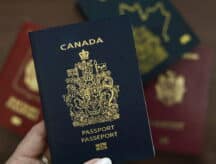Atlantic Immigration Program provides faster path to Canadian permanent residency
The Atlantic Immigration Program (AIP) is an immigration pathway for skilled workers who want to settle in any of the provinces that make up Atlantic Canada:
- New Brunswick;
- Newfoundland and Labrador;
- Nova Scotia; and
- Prince Edward Island (PEI).
Discover if You Are Eligible for Canadian Immigration
The AIP is an employer-driven program. To be eligible, a foreign national requires a job offer from a designated employer in Atlantic Canada.
Benefits of the AIP
Compared against other Canadian immigration pathways, the AIP provides several benefits for those who want to settle in any of the Atlantic provinces:
- candidates enjoy shorter processing times;
- candidates can legally work in Canada while pursuing their PR status;
- work permits do not require Labour Market Impact Assessments (LMIAs); and
- candidates enjoy individualized settlement services.
Shorter processing times
AIP is a popular immigration pathway in the Atlantic provinces because it gives eligible candidates a route to work in Canada and attain permanent resident status simultaneously.
Current processing time for a candidate applying for permanent residency through AIP is eight months – shorter than for many other PR pathways.
LMIA-exempt work permit
If a candidate wants to start working before having been granted PR, they can apply for a temporary work permit. This work permit is LMIA-exempt.
To qualify for this work permit, a candidate must have
- a job offer from a designated employer; and
- a referral letter from the Atlantic province where they will be working.
This permit is valid for two years, and will only allow the candidate to work for the employer who has offered them the job. Being issued this work permit does not guarantee that the permanent resident application will be successful.
Individualized settlement services
Additionally, AIP places strong emphasis on helping candidates settle into their new provinces.
Employers need to help newcomers settle into the province by connecting them with a settlement agency that will help create an settlement plan. This means that candidates have access to more individualized settlement advice, helping them integrate in their new communities better.
Who is eligible?
Each Atlantic province processes a number of applications annually, based on local labour market demand. Candidates may reside inside or outside the Canada and must meet the program's eligibility requirements.
In addition to receiving a job offer from a designated employer in Atlantic Canada, candidates must be either
- a skilled worker (whether their experience is inside Canada or outside); or
- a recent graduate of a recognized post-secondary institution in Atlantic Canada.
AIP eligibility for skilled workers:
- Skilled workers are considered eligible for AIP if they’ve worked at least 1,560 hours within the last five years. That comes down to roughly 30 hours per week if they’ve worked for a year.
- The work experience must be in a National Occupational Classification (NOC) 2021 Training, Education, Experience and Responsibilities (TEER) category of 0, 1, 2, 3, or 4.
AIP eligibility for recent graduates:
International student graduates are considered eligible for AIP if:
- They have a credential from a recognized post-secondary institution in 1 of the 4 Atlantic provinces which took at least two years of studies;
- They were a full-time student for the entire time of studying;
- They lived in one of the Atlantic provinces for at least 16 months during the last two years before graduating; and
- They had legal status needed to work, study, or get training while in Canada.
Other criteria for AIP:
Educational Requirements
Education requirements vary depending on the NOC TEER of the candidate's job offer:
| NOC TEER | Education requirements |
| 0 or 1 | One-year Canadian post-secondary educational credential or higher, or the equivalent from outside Canada |
| 2, 3, or 4 | Canadian high school diploma, or the equivalent from outside Canada |
*All degrees outside Canada need an educational credential assessment (ECA). The ECA report must be less than five years old from the date IRCC receives the application.
Language Requirements
The candidate must demonstrate a certain level of language proficiency, based on the NOC TEER of their job offer:
| NOC TEER | Minimum Canadian Language Benchmark (CLB) |
| 0, 1, 2, or 3 | CLB 5 |
| 4 | CLB 4 |
The language test results must be less than two years old from the date of application.
Settlement Funds
Applicants need to prove that they have enough money to support themselves and their family in Canada. The amount of money needed depends on the size of the family.
| Number of family members | Funds needed (in CAD) |
| 1 | $3,672 |
| 2 | $4,572 |
| 3 | $5,620 |
| 4 | $6.824 |
| 5 | $7,740 |
| 6 | $8,729 |
| 7 | $9,718 |
| If more than 7, add this amount for every additional family member | $989 |
If someone is already living and working in Canada with a valid work permit, they don’t need to show proof of funds.
What is the difference between the AIP and Provincial Nominee Programs?
The Provincial Nominee Program (PNP) allows provinces in Canada to nominate individuals who wish to immigrate to Canada and who are interested in settling in that province.
There are over 80 provincial immigration streams, and, unlike AIP, many streams do not require a candidate to have a job offer, or Canadian work or study experience to receive a nomination.
PNPs are usually a two-step process to permanent residency. A candidate must first receive a provincial nomination, and then apply to the federal government for permanent residence.
For this reason, and because of generally longer processing times, PNP application processes may take more time than AIP applications when it comes to PR status.
| Atlantic Immigration Program | Provincial Nominee Program | |
| Valid for | New Brunswick, Newfoundland & Labrador, Nova Scotia, Prince Edward Island | All provinces except for Nunavut and Quebec |
| Need a job offer | Yes, from designated employer | Not necessary, depending on the PNP stream |
| Pathway to PR | One-step process. Eligible candidates can directly apply for PR | Two-step process. Candidates must first be nominated by the province, then invited to apply to the federal government. |
| Processing time until PR | 8 months (as of October 2024) | Varies according to province and stream. Approximate time for enhanced nominations: 8-12 months Approximate time for base nominations: 12-24 months |
| Settlement funds | Needed, but significantly lesser than proof of funds needed for Express Entry | Not all PNP streams require settlement funds. When needed, Express Entry minimum proof of funds is significantly higher than AIP settlement funds needed |
| Settlement support | AIP requires a settlement plan to help candidates, and their families integrate better | Most PNPs does not require a settlement plan |
Processing times are not guaranteed. Expected processing times can fluctuate based on application demand, and times can vary significantly among individual applications.
How can I apply for the AIP?
If you meet the above eligibility criteria, you need to get a job offer from a designated employer in any of the Atlantic provinces. The job offer must meet certain requirements, including being:
- Full-time (not seasonal or part-time).
- For NOC TEER 0, 1, 2, or 3: valid for at least one year from the time you become a permanent resident.
- For NOC TEER 4: permanent, meaning the offer has no set end date.
The next step would be to start collecting required documents. This includes:
- Your language test;
- An ECA report, if you studied outside Canada; and
- Proof of funds.
After this, you can work with a settlement agency to get a settlement plan. These are free and can be done whether you’re already in Canada or outside country. Your designated employer might be able to help you find a settlement agency.
Next, you need a Certificate of Endorsement, which your employer needs to apply for.
You can submit your permanent residence application after your employer confirms that your offer has been endorsed by the province.
After you have completed the above-mentioned steps, you can apply for your PR online. You will need to fill out some forms, upload all the documents and photo scans, pay fees, and in most cases submit your biometrics.
What is a designated employer?
The provincial government approves certain employers in Atlantic Canada so they can hire foreign workers.
Employers must meet certain criteria, such as being in good standing and complying with employment standards, as well as health and safety legislation.
Companies also have to have been in continuous, active operation under the same management for at least two years in one of the Atlantic provinces, or be able to show continuous, active operation in another location with approval from the province.
There is no additional cost to becoming a designated employer.
Demand for AIP
The last few years have seen a rise in the number of newcomers choosing to settle in Atlantic Canada.
According to the Atlantic Economic Council’s Atlantic Immigration Tracker, immigration reached a record 32,000 in the region in 2023 – up from 5,800 in 2013.
“For the first time, the three Maritime provinces are attracting immigrants in proportion to their share of Canada’s population,” said Patrick Brannon, a senior researcher with the council.
With the Atlantic provinces having become increasingly popular with newcomers, some provinces have paused the program to meet changing labour market needs.
On September 18, New Brunswick announced that it was no longer accepting new endorsement applications under the program for the remainder of the year, as the allocation for 2024 had been reached. The program is expected to reopen in the province in early 2025.
In Nova Scotia, there is an indefinite pause on immigration applications from food service supervisors (NOC 62020).
- Do you need Canadian immigration assistance? Contact the Contact Cohen Immigration Law firm by completing our form
- Send us your feedback or your non-legal assistance questions by emailing us at media@canadavisa.com



